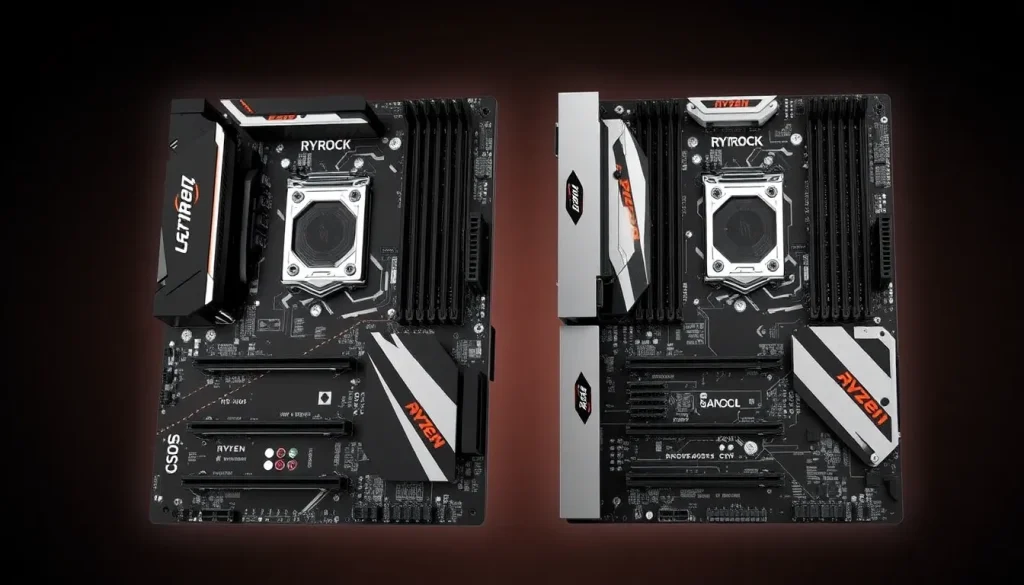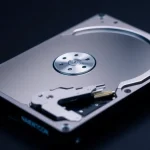ASRock addresses issues with Ryzen 9000 motherboards and BIOS 3.40

ASRock has found itself at the center of controversy regarding the compatibility and stability of its motherboards designed for AMD's Ryzen 7000 and 9000 series processors. The ongoing situation is marked by a series of official statements from the company, particularly from its South Korean division, which have sparked debate and raised questions about accountability. While they acknowledge some issues, their response leaves much to be desired, especially in terms of clarity and transparency.
In this article, we will delve into ASRock's recent statements, the specific problems users are facing, and the implications for both consumers and the broader tech industry. Furthermore, we'll explore the context surrounding these issues, offering insights into potential solutions and future developments.
ASRock's official stance on motherboard issues with Ryzen 7000 and 9000
ASRock's recent communications indicate that they are aware of the ongoing issues plaguing their motherboards, especially concerning BIOS stability. However, they stop short of fully accepting responsibility for these problems. In their statements, they provide some insights into the steps they are taking without fully addressing the concerns raised by users.
Some key points from their statements include:
- Recent BIOS Update: ASRock has released BIOS version 3.40, which they claim enhances system compatibility and stability. This update was made available on August 29th and is part of their ongoing efforts to monitor and resolve issues.
- Internal Testing: The company claims to have conducted long-term testing before releasing the update and continues to work alongside internal overclockers to ensure the new BIOS meets performance expectations.
- Encouragement to Update: ASRock urges users to update to BIOS 3.40 before utilizing their motherboards, emphasizing that this step is crucial for optimal performance.
Despite these assurances, many users still report ongoing problems, which raises concerns about the company's commitment to resolving the underlying issues.
Understanding the blackout issue affecting Ryzen CPUs
One of the most significant concerns raised by users is the blackout problem, often referred to as "CPU death" or sudden failure. While ASRock acknowledges this issue, they argue it is not solely caused by their hardware and is more complex than it appears.
ASRock detailed their perspective on the blackout phenomenon, suggesting that its causes are multifaceted:
- Power Supply Issues: Insufficient or unstable power delivery can result in CPU failures.
- Other Factors: Various additional elements, including thermal conditions and user modifications, may contribute.
- Classification of Failures: They classify undetectable failures as normal CPU malfunctions rather than faults with their motherboards.
This nuanced view aims to shift some of the blame away from ASRock and onto external factors, which has generated significant dialogue in tech forums and among enthusiasts.
Distinguishing between blackout and socket burn phenomena
ASRock has made a concerted effort to clarify the distinction between the blackout issue and what is commonly referred to as "socket burn." They argue that these two conditions are fundamentally different in terms of both cause and effect.
Key differences highlighted by ASRock include:
- Blackout: This refers to a failure where the CPU stops functioning without visible damage, which can be a symptom of a larger issue.
- Socket Burn: This is a physical damage condition that affects the motherboard socket, typically resulting from overheating or electrical failures.
ASRock reported that cases of socket burn have been minimal, with only a few incidents globally. They emphasize that while blackout issues may have affected their boards, socket burn incidents are rare and typically not related to their products.
The impact of ASRock's response on the tech community
The ongoing issues with ASRock motherboards and Ryzen CPUs have sparked considerable backlash from consumers and tech enthusiasts alike. Many users express frustration over the lack of clear accountability and effective solutions from ASRock. Some implications of this controversy include:
- Consumer Trust: Trust in ASRock has been shaken, leading to concerns about the reliability of their products.
- Market Competition: Competitors may capitalize on ASRock's troubles by highlighting their own stability and reliability in comparison.
- Future Developments: ASRock will likely need to make further updates and improvements to regain consumer confidence.
The tech community remains vigilant, scrutinizing ASRock's moves and monitoring user experiences with the new BIOS update.
Future considerations for ASRock and its customers
As ASRock navigates this challenging situation, several considerations emerge for both the company and its customers:
- Continued Monitoring: Users should keep an eye on firmware updates and community feedback to ensure they have the latest information.
- Engagement with Users: ASRock needs to improve its communication with users, addressing concerns directly and transparently.
- Importance of Reviews: Tech review platforms will play a crucial role in assessing the effectiveness of ASRock's updates and the overall experience of users.
As the situation continues to evolve, it's vital for both ASRock and consumers to remain engaged and informed to navigate the complexities of hardware compatibility and performance.
For further insights into ASRock's response, you can watch this video that delves deeper into the issues surrounding their motherboards and Ryzen processors:




Leave a Reply